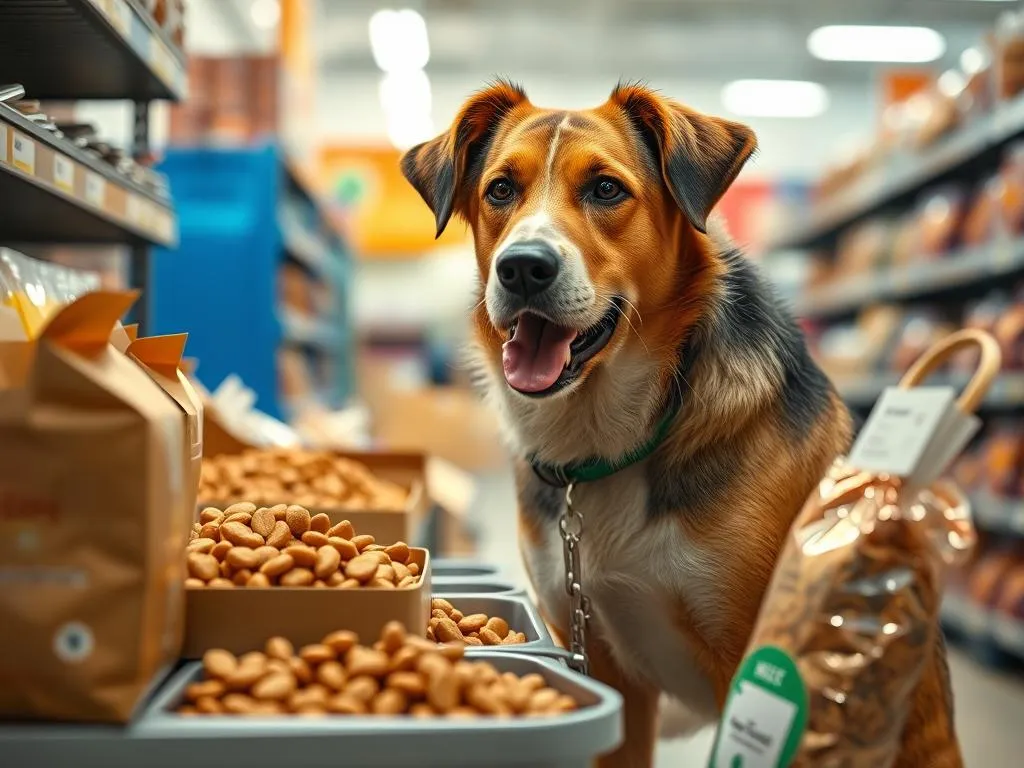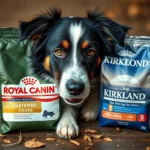
Introduction
Proper dog nutrition is crucial for maintaining your furry friend’s health and well-being. A balanced diet ensures they have the energy to play, the health to thrive, and the longevity we all desire. One growing trend among dog owners is buying dog food in bulk. This approach not only supports your dog’s nutritional needs but also offers various benefits that can enhance your pet-parenting experience. In this article, we’ll delve into the essentials of dog nutrition, the advantages of bulk buying, tips for selecting the right food, and best practices for storage and transitioning to new diets.
Understanding Dog Nutrition
Nutritional Requirements for Dogs
Dogs, like humans, need a variety of nutrients to stay healthy. Essential nutrients for dogs include:
- Proteins: Vital for growth, maintenance, and repair of tissues. High-quality protein sources such as meat, fish, and eggs are the best choices.
- Fats: Provide energy and support cell structure. Omega-3 and Omega-6 fatty acids are particularly beneficial for skin and coat health.
- Carbohydrates: While not essential, they can be a good source of energy and fiber. Whole grains and vegetables are preferable.
- Vitamins and Minerals: Important for various bodily functions, including immune system support and bone health.
Nutritional needs also vary by life stage. Puppies require more protein for growth, while senior dogs may benefit from diets lower in calories but higher in fiber.
Common Misconceptions About Dog Nutrition
There are many myths surrounding dog diets. For instance, some dog owners believe that grain-free diets are inherently better. However, grains can provide valuable nutrients and energy. Similarly, raw diets may pose health risks due to bacterial contamination. Therefore, it’s essential to consult with a veterinarian to determine the best diet for your dog, debunking common misconceptions along the way.
The Benefits of Buying Dog Food in Bulk
Cost-Effectiveness
One of the most significant advantages of buying dog food in bulk is the cost savings. Bulk purchases often provide a lower price per pound compared to retail purchases. This can lead to substantial savings over time, especially for larger dogs or multiple pets. Additionally, budgeting for bulk purchases can be easier as you can plan your purchases around sales and discounts.
Convenience
Buying in bulk is a convenient option for busy pet owners. It reduces the frequency of shopping trips, allowing you to stock up on dog food and focus on other responsibilities. However, it’s crucial to have proper storage solutions to maintain the quality and freshness of the food. Airtight containers can help keep the food safe from pests and moisture.
Quality Control
When you choose to purchase dog food in bulk, you can often ensure a more consistent quality. By selecting reputable brands known for their quality control practices, you can trust that the food you feed your dog meets high standards. It’s important to research brands and read reviews before making bulk purchases.
Choosing the Right Dog Food
Evaluating Ingredients
Reading dog food labels is essential when selecting the right diet for your furry friend. Look for high-quality ingredients that are easily recognizable. The first ingredient should typically be a source of protein, such as chicken, beef, or fish. Avoid foods that list fillers, such as corn and soy, as their primary ingredients.
Special Dietary Needs
Understanding your dog’s specific dietary needs is crucial. Some dogs may have food allergies or sensitivities, necessitating a special diet. For example, dogs with grain allergies may thrive on grain-free options, while those needing higher protein may benefit from specific formulations. It’s essential to identify these needs and consult your vet for personalized recommendations.
Age and Breed Considerations
Different breeds and life stages require tailored nutritional approaches. Large breed puppies need a diet designed to support slow growth to prevent joint issues, while small breed adults may require higher calorie content. Always consider your dog’s age and breed when selecting food, and look for formulas specifically designed for their needs.
Where to Buy Dog Food in Bulk
Online Retailers
Online shopping has revolutionized how we purchase dog food. Many popular online retailers offer bulk options, often at competitive prices. Look for websites that provide subscription services, which can offer additional discounts and convenience. Always check for customer reviews and ratings to ensure you’re getting a quality product.
Local Pet Supply Stores
Buying from local pet supply stores can also be beneficial. Many local stores offer bulk purchasing options and allow you to support small businesses in your community. Ask about their bulk options and any discounts they may provide for larger purchases.
Wholesale Clubs and Bulk Stores
Wholesale clubs and bulk stores often have membership options that can lead to significant savings on dog food. These establishments typically offer a variety of brands and sizes at lower prices than traditional retail outlets. However, evaluate the brands available to ensure they meet your dog’s nutritional requirements.
Storing Bulk Dog Food
Best Practices for Storage
Proper storage of bulk dog food is crucial to maintaining its freshness and quality. Ideally, dog food should be stored in a cool, dry place away from direct sunlight. Use airtight containers made of food-safe materials to prevent exposure to moisture and pests.
Shelf Life and Expiration
Understanding expiration dates and shelf life is essential when purchasing bulk dog food. Most dry dog foods have a shelf life of about 12-18 months when stored correctly. To ensure you’re using the oldest food first, practice stock rotation by placing newer bags behind older ones.
Transitioning Your Dog to New Food
Gradual Transition Techniques
When introducing a new dog food, it’s vital to transition gradually to avoid digestive upset. Mix a small amount of the new food with the old food, gradually increasing the new food’s proportion over a week or two. This approach allows your dog’s digestive system to adjust to the new ingredients.
Monitoring Your Dog’s Reaction
During the transition period, observe your dog for any signs of digestive issues, such as diarrhea, vomiting, or lack of appetite. If you notice any adverse reactions, consult your veterinarian for guidance. They can help determine whether the new food is appropriate for your dog or if adjustments are needed.
Conclusion
In conclusion, buying dog food in bulk can be a wise decision for pet owners seeking to provide their dogs with optimal nutrition while enjoying cost savings and convenience. By understanding your dog’s nutritional needs, evaluating food options carefully, and storing food properly, you can ensure your furry companion thrives. Remember, informed choices in dog nutrition are essential for your pet’s health and happiness, so take the time to research and make the best decisions for your beloved dog.









